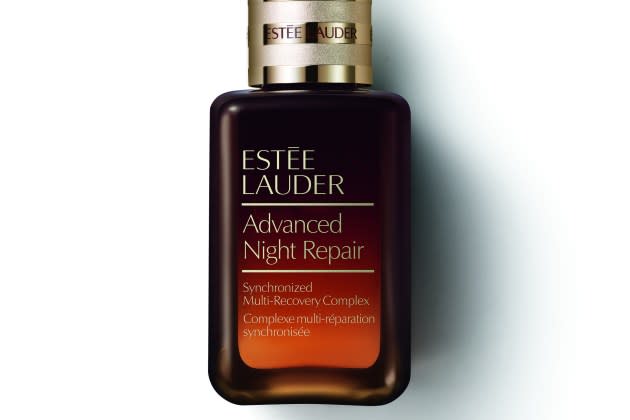2023 Top 100: From China to Cyberattacks, the Estée Lauder Cos. Loses Steam

From downgraded forecasts to layoffs to cyber-attacks, the Estée Lauder Cos. faced numerous challenges in 2023.
Perhaps the toughest came from China, where for years it successfully rode the wave of the country’s beauty boom, selling buckets of hero products like Estée Lauder Advance Night Repair Serum to Chinese consumers.
More from WWD
EXCLUSIVE: For Corporate Branding, Pernod Ricard Follows Its Nose
Passion Becomes Profession for Agatha Relota Luczo, Olive Oil Sommelier
The coronavirus pandemic put an abrupt stop to that, however, and sales failed to bounce back both in China and its Asia travel retail business. Indeed, in Lauder’s most recent quarter, net sales decreased 14% in the Europe, the Middle East and Africa region, which includes Asia travel retail, and were down 7% in Asia-Pacific.
In the last three months of 2023 on a category basis, skin care net sales declined 10%, on the back of a decrease in its Asia travel retail business. Net sales from Estée Lauder, Clinique and Origins all fell.
Makeup sales declined 8%, while fragrance sales were flat, as increases from luxury brands Le Labo and Jo Malone London were offset by a decline from Estée Lauder. Hair care net sales also dropped, by 6%.
One of the biggest issues, sources said, seems to be the company’s reliance on daigou — the practice of Chinese consumers purchasing products at lower prices overseas and selling them at a discount in China. While exact numbers are not known, analysts say that Lauder was certainly active in this area. When the Chinese government cracked down on daigou, Lauder was left in a difficult spot.
Nevertheless, industry watchers contend that Estée Lauder and La Mer, the two brands understood to be involved in daigou, are still seen as desirable by consumers and the company needs to rebuild brand equity through reinvestments.
Lauder is also believed to have a significant backlog of products in the popular Chinese vacation resort of Hainan, no doubt as a result of COVID-19 lockdowns in China, which curtailed travel. Some of those products are now fast approaching their expiration dates, said analysts.
As a result of the slower than expected recovery, Lauder once again cut its full-year forecast in November, sending its share price down by around 19% to close at $104.51, a six-year low. For context, it peaked at over $370 in January 2022.
In a bid to demonstrate to the markets it is working on a turnaround, Lauder pledged to drive $1.1 billion to $1.4 billion of incremental operating profit for 2025 and 2026. This February, it revealed a restructuring plan, including laying off between 3% and 5% of its 62,000-strong global workforce. This followed layoffs at its trio of California brands — Glamglow, Smashbox and Too Faced.
In addition to these troubles, in July the company said it had identified a cybersecurity incident that involved an unauthorized third party gaining access to some of its systems. It later confirmed the incident had been contained.
On a more positive note, the company’s early investment and incubation arm, New Incubation Ventures, made minority investments in two Chinese brands, fragrance label Melt Season and clean beauty brand Code Mint, as well as in British fragrance brand Vyrao. It also plans to open a fragrance atelier in Paris this year.
Lauder is hoping, too, that its China Innovation Labs, which opened in Shanghai in 2022, will better position it to capture growth and accelerate locally relevant innovation in key categories.
As to the company’s performance, it was not all doom and gloom. It noted strong performance from MAC, and double-digit gains from The Ordinary. Le Labo’s sales gained more than 40% on an organic basis.
Finally, in executive moves, one of the biggest changes in recent times also occurred in 2023 when Leonard A. Lauder stepped down from the board of directors. Lauder will retain the title of chairman emeritus of the firm, which was founded by his parents, Estée and Joseph Lauder, in 1946. He will also continue his role as “chief teacher officer.” In turn, Gary M. Lauder, his youngest son, and the managing director of Lauder Partners LLC, a Silicon Valley-based venture capital firm, joined the board.
Also on the HR front, in April the company kicked off its official ownership of Tom Ford with high-level hires: Guillaume Jesel as president and chief executive officer of the brand, and Peter Hawkings as creative director.
Most recently, Clinique made a philanthropic commitment of $5 million over seven years to establish the Mount Sinai-Clinique Healthy Skin Dermatology Centre with Icahn School of Medicine at Mount Sinai in New York City. It will study how skin ages, skin allergies and inflammatory eczematous skin conditions, including eczema and contact dermatitis.
Best of WWD

 Yahoo Finance
Yahoo Finance 